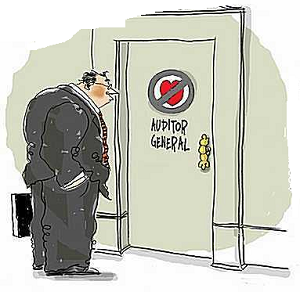UBS CEO Oswald Grübel has resigned on 24 Sept 2011, soon after the latest unauthorized trading scandal, containing triggered the bank to suffer from US$2.3billion deficits arising from unauthorized transactions. Sergio Ermotti, a veteran Merrill Lynch executive, has been named because the interim CEO to lead the corporation.
Regardless of reaching outstanding turn-around and strengthened UBS’ fundamentals through his period, Oswald Grübel stepped down soon after the unauthorized trading performed from the rogue trader, 31-year-old Kweke Adoboli.
 The board plus the management of this Swiss bank are inside the midst of examining this scandal.
The board plus the management of this Swiss bank are inside the midst of examining this scandal.This complete incident re-emphasized the value of obtaining a sturdy internal controls process in spot. CEO may possibly not be the person designate the internal controls in-place. On the other hand, a CEO requires to make sure that sturdy internal controls are in spot to prevent/ determine unauthorized transactions. Therefore, it seems for the public that Oswald Grübel has stepped down as he deemed the responsibility of unauthorized trading took place.
You will discover 5 essential components in an internal handle process, namely:
- control procedures,
- risk assessment,
- control environment,
- facts & communication, and
- monitoring
It’s obvious that CEO need to be heavily involved in “information & communication” and “monitoring” components. To illustrate, there must be right channel for all essential facts to be heard / listened by senior management,. It’s also significant to make sure that appropriate level of monitoring activities been carried out.



 Because the prepaid amount expires, the balance in Prepaid Insurance is lowered by a credit to Prepaid Insurance and also a debit to Insurance Expense. This can be performed with an adjusting entry in the finish of every single accounting period (e.g. month-to-month). One particular objective with the adjusting entry will be to match the right volume of insurance expense for the period indicated around the income statement. (The income statement need to report the quantity of insurance which has expired through the period indicated inside the income heading.) A different objective will be to report around the balance sheet the unexpired volume of insurance because the asset Prepaid Insurance.
Because the prepaid amount expires, the balance in Prepaid Insurance is lowered by a credit to Prepaid Insurance and also a debit to Insurance Expense. This can be performed with an adjusting entry in the finish of every single accounting period (e.g. month-to-month). One particular objective with the adjusting entry will be to match the right volume of insurance expense for the period indicated around the income statement. (The income statement need to report the quantity of insurance which has expired through the period indicated inside the income heading.) A different objective will be to report around the balance sheet the unexpired volume of insurance because the asset Prepaid Insurance.










